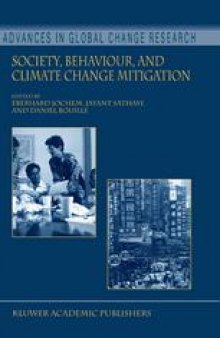 جزییات کتاب
جزییات کتاب
The Intergovernmental Panel on Climate change (IPCC) was jointly established by the World Meteorological Organization (WMO) and the United Nations Envir- ment Programme (UNEP) to assess the scientific, technical and socio-economic information relevant for the understanding of the risk of human-induced climate change. Since its inception the IPCC has produced a series of comprehensive - sessment Reports, Special Reports and Technical Papers on the state of the und- standing of causes of climate change, its potential impacts, and options for response strategies. In 1998, Working Group III (WG III) of the ongoing Third Assessment was charged by the IPCC Plenary to assess the scientific, technical, environmental, economic and social aspects of the mitigation of climate change and a series of cross-cutting issues such as equity, development and sustainability. Its mandate was changed from a predominantly disciplinary assessment of the economic and social dimensions of climate change in the Second Assessment Report to an interdisciplinary assessment of the options to control the emissions of greenhouse gases and/or enhance their sinks. One key issue of the IPCC Third Assessment Report (TAR) on mitigation of climate change, which has undergone an extensive review by scientists and governments, is the role of present and future behaviour of individuals, households, private and p- lic companies, public authorities and other stakeholders.



 دانلود کتاب
دانلود کتاب

 جزییات کتاب
جزییات کتاب





 این کتاب رو مطالعه کردید؟ نظر شما چیست؟
این کتاب رو مطالعه کردید؟ نظر شما چیست؟
